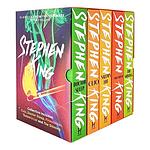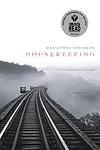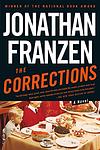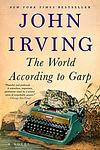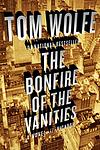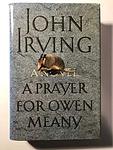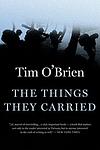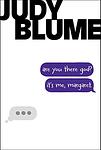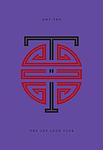The Greatest American "Fiction" Books Since 1970
Click to learn how this list is calculated.
This list represents a comprehensive and trusted collection of the greatest books. Developed through a specialized algorithm, it brings together 273 'best of' book lists to form a definitive guide to the world's most acclaimed books. For those interested in how these books are chosen, additional details can be found on the rankings page.
Genres
Countries
Date Range
Reading Statistics
Click the button below to see how many of these books you've read!
Download
If you're interested in downloading this list as a CSV file for use in a spreadsheet application, you can easily do so by clicking the button below. Please note that to ensure a manageable file size and faster download, the CSV will include details for only the first 500 books.
Download-
1. Beloved by Toni Morrison
This novel tells the story of a former African-American slave woman who, after escaping to Ohio, is haunted by the ghost of her deceased daughter. The protagonist is forced to confront her repressed memories and the horrific realities of her past, including the desperate act she committed to protect her children from a life of slavery. The narrative is a poignant exploration of the physical, emotional, and psychological scars inflicted by the institution of slavery, and the struggle for identity and self-acceptance in its aftermath.
-
2. The Color Purple by Alice Walker
Set in the early 20th century, the novel is an epistolary tale of a young African-American woman named Celie, living in the South. She faces constant abuse and hardship, first from her father and then from her husband. The story unfolds through her letters written to God and her sister Nettie, revealing her emotional journey from oppression to self-discovery and independence, aided by her relationships with strong women around her. The narrative explores themes of racism, sexism, domestic violence, and the power of sisterhood and love.
-
3. Song of Solomon by Toni Morrison
The novel explores the life of an African-American man, Macon "Milkman" Dead III, from birth to adulthood. Set against the backdrop of racial tension in the mid-20th century United States, it delves into his journey of self-discovery and understanding his heritage. As Macon embarks on a literal and figurative journey south to reconnect with his roots, he encounters various characters that help him understand his family history and the power of community. The narrative is deeply rooted in African-American folklore and mythology, offering a profound commentary on identity, personal freedom, and the destructive power of racism.
-
4. Gravity's Rainbow by Thomas Pynchon
Set during the end of World War II, the novel follows Tyrone Slothrop, a lieutenant in the U.S. Army, as he tries to uncover the truth behind a mysterious device, the "Schwarzgerät", that the Germans are using in their V-2 rockets. The narrative is complex and multi-layered, filled with a vast array of characters and subplots, all connected by various themes such as paranoia, technology, and the destructive nature of war. The book is known for its encyclopedic nature and its challenging, postmodernist style.
-
5. A Confederacy of Dunces by John Kennedy Toole
The novel is a comedic satire set in New Orleans in the early 1960s, centered around Ignatius J. Reilly, a lazy, eccentric, highly educated, and socially inept man who still lives with his mother. Ignatius spends his time writing a lengthy philosophical work while working various jobs and avoiding the responsibilities of adulthood. The story follows his misadventures and interactions with a colorful cast of characters in the city, including his long-suffering mother, a flamboyant nightclub owner, a beleaguered factory worker, and a frustrated hot dog vendor.
-
6. Fear and Loathing in Las Vegas: A Savage Journey to the Heart of the American Dream by Hunter S. Thompson
This book is a semi-autobiographical novel that chronicles the adventures of a journalist and his attorney as they embark on a drug-fueled trip to Las Vegas. The narrative is a wild and hallucinatory exploration of the American Dream, filled with biting social commentary and outrageous antics. The protagonist's quest for the American Dream quickly devolves into an exploration of the darker side of human nature, highlighting the excesses and depravities of 1960s American society.
-
7. Blood Meridian by Cormac McCarthy
Set in the mid-19th century, this novel follows a violent teenager known as "the Kid" as he joins a group of Indian-hunters led by the enigmatic and brutal Judge Holden. The narrative is a gruesome depiction of the lawless American West, filled with philosophical musings, vivid descriptions of the harsh landscape, and brutal, relentless violence. The story explores themes of human nature, morality, and the inherent chaos and brutality of life.
-
8. The Shining by Stephen King
A recovering alcoholic accepts a job as a winter caretaker at a remote Colorado hotel, hoping the isolation will help him reconnect with his wife and young son, and work on his writing. However, the hotel has a dark history and a powerful malevolent presence that influences him into violence, while his psychic son sees horrific forebodings from both past and future. As the winter weather leaves them snowbound, the father's sanity deteriorates, leading to a terrifying climax.
-
9. The Complete Stories of Flannery O'Connor by Flannery O'Connor
This comprehensive collection of short stories showcases the author's exploration of the human condition, particularly in the American South. The stories, known for their dark humor, religious themes, and grotesque characters, delve into the complexities of morality, ethics, and the struggle between good and evil. The author's unique blend of Southern Gothic style and religious allegory creates a vivid portrait of a society grappling with its own contradictions and shortcomings.
-
10. The Stand by Stephen King
This post-apocalyptic horror/fantasy novel presents a world devastated by a deadly plague, killing 99% of the population. The survivors, drawn together by dreams of a charismatic and benevolent figure, gather in Boulder, Colorado to form a new society. However, a malevolent figure also emerges, attracting a following of his own and setting the stage for a classic battle between good and evil. The story delves into themes of community, morality, and the capacity for both destruction and regeneration within humanity.
-
11. The Secret History by Donna Tartt
A group of six classics students at a small, elite Vermont college, led by a charismatic professor, become entranced by the study of Greek culture and decide to recreate a Dionysian ritual, which ends in a tragic accident. The group, bound by their shared secret, begins to unravel as paranoia and guilt take hold. The novel explores themes of beauty and terror, the allure of the esoteric, and the destructive consequences of obsession.
-
12. American Pastoral by Philip Roth
This novel tells the story of Seymour "Swede" Levov, a successful Jewish-American businessman and former high school athlete from Newark, New Jersey. Levov's happy and conventional upper middle class life is ruined by the domestic social and political turmoil of the 1960s during the presidency of Lyndon B. Johnson, which in the novel is seen through the eyes of the narrator, Nathan Zuckerman, a budding writer who idolizes the Levovs. The novel portrays the impact of this turmoil on Levov and his family, particularly his rebellious daughter who becomes involved in revolutionary political activities.
-
13. Housekeeping by Marilynne Robinson
The novel explores the life of two sisters, Ruth and Lucille, who are raised by a series of relatives in a small, secluded town in Idaho after their mother's suicide. The girls' lives are profoundly affected by the eccentric and transient lifestyle of their aunt Sylvie, who becomes their guardian. The narrative delves deeply into themes of family, identity, womanhood, and the impermanence of life, ultimately leading to a divide between the sisters as they choose different paths in life.
-
14. The Corrections by Jonathan Franzen
The novel revolves around the lives of the Lambert family, an old-fashioned midwestern couple and their three adult children. The parents, Alfred and Enid, are dealing with Alfred's Parkinson's disease and their own marital problems, while their children are each facing their own personal and professional crises. The narrative explores the themes of family dynamics, societal expectations, and the struggles of modern life. The story climaxes with the family's last Christmas together at their childhood home.
-
15. The World According to Garp by John Irving
The novel follows the life of T.S. Garp, the illegitimate son of a feminist mother, who becomes a writer. Garp's life is filled with unusual experiences and characters, from his unconventional conception to his untimely death. He navigates through a world filled with sexual violence, infidelity, and gender issues, and his life story is punctuated by his own literary creations. His mother's feminist ideals and the tragic events of his life deeply influence his writing and worldview.
-
16. Bonfire of the Vanities by Tom Wolfe
This novel follows the life of a successful Wall Street bond trader who, after a wrong turn in the Bronx, finds his life spiraling out of control. After a hit-and-run accident in a predominantly black neighborhood, he becomes the target of a political witch hunt, exacerbating racial tensions in the city. As the protagonist's world unravels, the story provides a satirical commentary on 1980s New York City, exploring themes of racism, classism, politics, and greed.
-
17. Neuromancer by William Gibson
In this groundbreaking cyberpunk novel, a washed-up computer hacker is hired by a mysterious employer to pull off the ultimate hack. As he navigates a dystopian future filled with artificial intelligence, corporate espionage, and virtual reality, he must confront his own past and the dark realities of the digital world. The narrative explores themes of technology, identity, and consciousness, pushing the boundaries of science fiction literature.
-
18. A Prayer for Owen Meany by John Irving
The book is a tale of two childhood friends, one of whom believes he is God's instrument. The story is set in a New England town during the 1950s and 1960s and follows the lives of the two boys, one small and with a strange voice, who has visions of his own death and believes he is an instrument of God, and the other, the narrator, who struggles with faith. The novel explores themes of faith, fate, and the power of friendship against a backdrop of historical and political events, including the Vietnam War.
-
19. White Noise by Don DeLillo
The novel is a postmodern exploration of death and consumerism in the United States. It follows a year in the life of Jack Gladney, a professor who has made his name by pioneering the field of Hitler Studies at a small liberal arts college in Middle America. Jack and his fourth wife, Babette, are afraid of death and are obsessed with finding a cure for their fear. Their lives are disrupted by an airborne toxic event, which forces them to confront their mortality and the toxic effects of modern life.
-
20. The Things They Carried by Tim O'Brien
The book is a collection of linked short stories about a platoon of American soldiers fighting in the Vietnam War. The story is semi-autobiographical, based on the author's experiences in the war. The narrative explores the physical and emotional burdens the soldiers carry during the war, as well as the lingering effects of war on veterans. It delves into themes of bravery, truth, and the fluidity of fact and fiction.
-
21. The Amazing Adventures of Kavalier and Clay by Michael Chabon
The book follows the lives of two Jewish cousins, one a skilled escape artist and the other a talented artist, before, during, and after World War II. They create a popular comic book superhero, which brings them fame and fortune. However, their success is complicated by personal struggles, including the escape artist's attempts to rescue his family from Nazi-occupied Prague and the artist's struggle with his sexuality. The narrative explores themes of escapism, identity, and the golden age of comic books.
-
22. Are You There God? It's Me, Margaret by Judy Blume
The book is a coming-of-age story about a sixth-grade girl who is growing up without a religious affiliation, due to her parents' interfaith marriage. The protagonist is in search of a single religion while also confronting typical pre-teen issues such as buying her first bra, having her first period, coping with crushes and the changes that come with growing up. The book explores themes of friendship, religion, love, and self-identity.
-
23. The Road by Cormac McCarthy
In a post-apocalyptic world, a father and his young son journey through a desolate landscape, struggling to survive. They face numerous threats including starvation, extreme weather, and dangerous encounters with other survivors. The father, who is terminally ill, is driven by his love and concern for his son, and is determined to protect him at all costs. The story is a haunting exploration of the depths of human resilience, the power of love, and the instinct to survive against all odds.
-
24. Infinite Jest by David Foster Wallace
This novel is a complex, multi-layered narrative that explores themes of addiction, recovery, and the human condition in a near-future society. The story is set in a tennis academy and a halfway house for recovering addicts, and it intertwines the lives of its numerous characters, including a gifted but troubled teenage tennis prodigy, his filmmaker father, and a group of Quebecois separatists. The book is known for its length, intricate plot, and extensive use of footnotes.
-
25. The Joy Luck Club by Amy Tan
This novel explores the complex relationships between four Chinese-American mothers and their American-born daughters. The narrative switches between the perspectives of the eight women, revealing their pasts, their struggles with cultural identity, and the misunderstandings that have grown between the generations. The mothers, who all experienced hardship in their native China, want their daughters to have better lives and thus push them to excel in America. The daughters, in turn, struggle to reconcile their American surroundings with their Chinese heritage.
Reading Statistics
Click the button below to see how many of these books you've read!
Download
If you're interested in downloading this list as a CSV file for use in a spreadsheet application, you can easily do so by clicking the button below. Please note that to ensure a manageable file size and faster download, the CSV will include details for only the first 500 books.
Download






